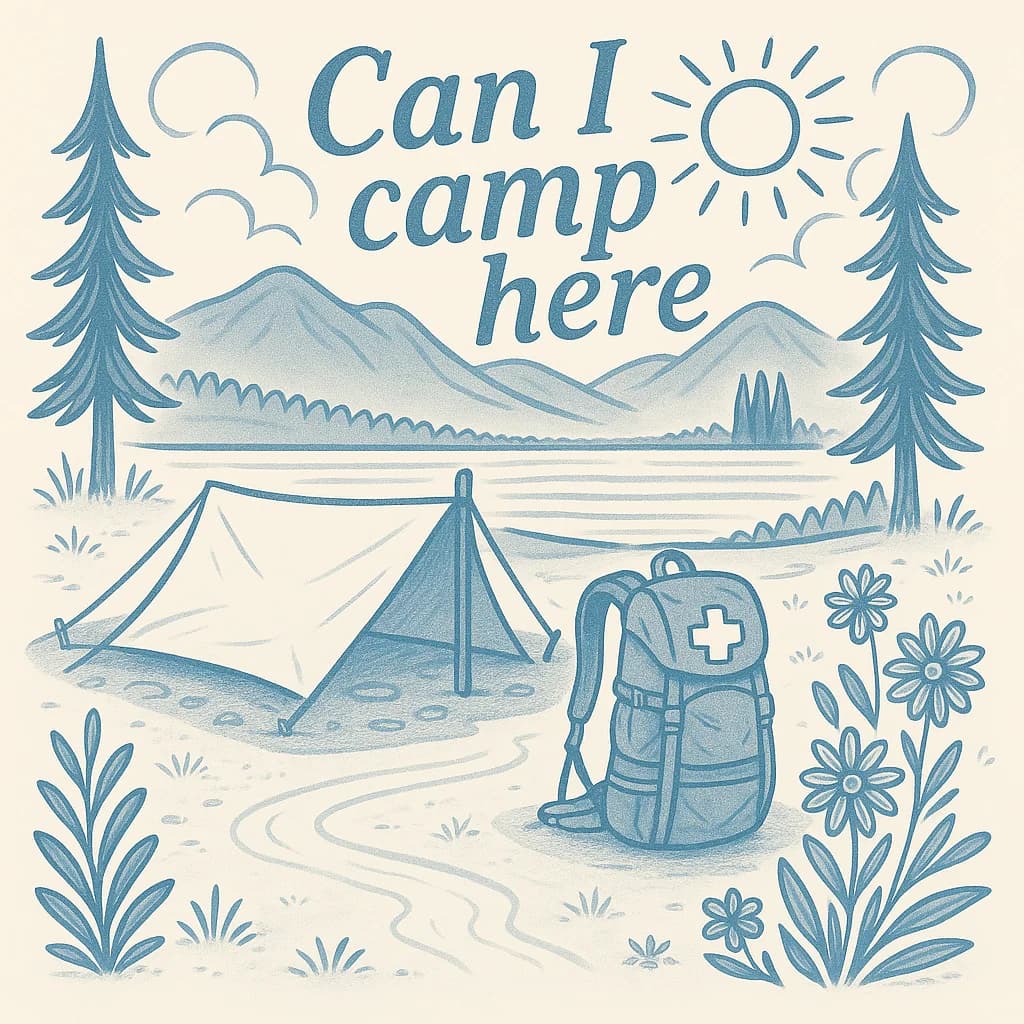CanICampHere
The goal is to provide accurate, up-to-date information about camping regulations across Switzerland
Project Mission
The CanICampHere project aims to create a comprehensive, user-friendly resource that helps outdoor enthusiasts understand where camping is allowed, restricted, or prohibited throughout Switzerland.
Switzerland has complex camping regulations that vary by canton, municipality, and protected area status. The goal is to aggregate this information and present it in an accessible format, helping campers make informed decisions and promoting responsible outdoor recreation.
By providing clear information about camping regulations, this project helps to:
- Reduce illegal camping in protected or sensitive areas
- Help outdoor enthusiasts find suitable camping locations
- Promote responsible camping practices
- Preserve Switzerland's natural beauty for future generations

Contribute
CanICampHere is a collaborative project that welcomes contributions from outdoor enthusiasts, local experts, and government officials to help improve the accuracy and comprehensiveness of the data.
How to Help
- •Report inaccuracies or outdated information
- •Provide information about local camping regulations
- •Suggest code or design improvements
- •Help translate content into additional languages
Get in Touch
Camping Status Legend
This legend explains the color-coded categories for camping regulations on the map. Each category can be toggled and its opacity adjusted in the "Camping Status" panel.
Important Notes:
- Emergency bivouacking (overnight stays without tents) is generally permitted in most areas
- Camping is generally not allowed in protected areas (e.g., national parks, nature reserves), in urban areas and tourist hotspots, or in densely populated regions
- Always ask for permission when camping on private land (e.g., farms)
- This platform serves as an informational guide only – always verify with local authorities
Camping is generally permitted in this area according to official sources. Check the tooltip for specific conditions or limitations.
Camping is permitted under specific conditions (e.g., with permits, limited duration, or designated areas only). Check the tooltip for details.
Camping is not permitted in this area according to official sources. This typically applies to protected areas and private property.
Camping is likely permitted based on unofficial sources, but this hasn't been confirmed by authorities. Verify locally before camping.
Camping may be permitted with restrictions based on unofficial sources. Conditions may apply – verify with local authorities.
Camping may not be permitted based on unofficial sources. This information requires verification with local authorities.
Content Usage Policy
Open Source Project
The CanICampHere is an open-source project. The codebase is available under [license name] license on GitHub.
Website Content
The following content requires permission for reuse:
- All graphical elements (logos, icons, illustrations)
- Camping restriction data by municipality
- Custom map styling and visualizations
- Photographs marked as proprietary
Data Usage
The camping restriction data compiled from various sources is provided for informational purposes only. For commercial use or redistribution, please contact us for permission.
Data Sources
CanICampHere relies on data from various official and community sources. Below is an overview of key data sources:
Official protected area data for UNESCO World Heritage Sites in Switzerland.
Geo Admin WMSData on water and migratory bird reserves critical for biodiversity.
Geo Admin WMSAreas where human activities are limited to preserve wildlife habitats.
Geo Admin WMSSensitive moorland areas with unique ecosystems in Switzerland.
Geo Admin WMSProtected forest areas where natural processes are allowed to occur.
Geo Admin WMSOfficial geographic boundaries from swisstopo.
swisstopo swissBOUNDARIES3DCamping regulations information from Touring Club Switzerland.
TCS Wild CampingApproximate tree line boundaries provided by Agroscope.
Agroscope Treeline DataPrinciples for responsible outdoor recreation.
Visit Leave No TraceCommunity-contributed data on mountain huts from OpenStreetMap.
OpenStreetMapLocations of campsites contributed by the OpenStreetMap community.
OpenStreetMapInformation on mountain passes from OpenStreetMap data.
OpenStreetMapDetailed lake data provided by the OpenStreetMap community.
OpenStreetMapGlacier data curated from OpenStreetMap.
OpenStreetMapThe map styles include Standard (OpenStreetMap), Satellite (Esri), and Topographic (OpenTopoMap).
View OpenStreetMap AttributionDisclaimer
While the goal is to provide accurate and up-to-date information, camping regulations can change, and there may be local restrictions not captured in the data. CanICampHere should be used as a general guide only.
Always verify information with official sources before planning your trip. Respect all posted signs and instructions from local authorities, even if they differ from what is shown on the map.
CanICampHere is not responsible for any consequences resulting from the use of information provided on this website.